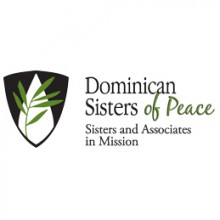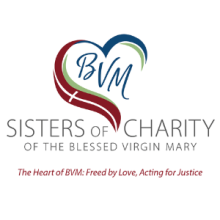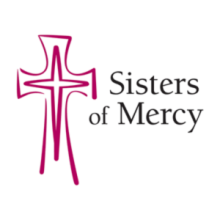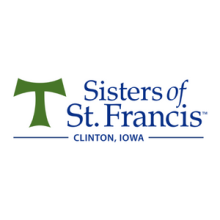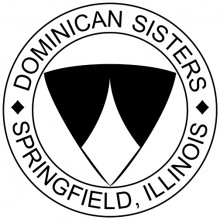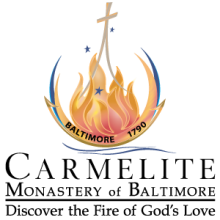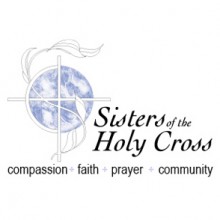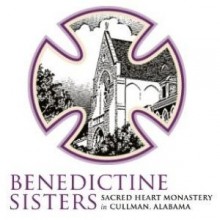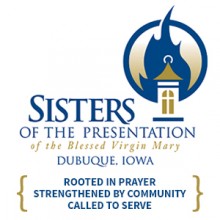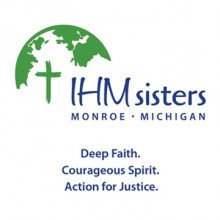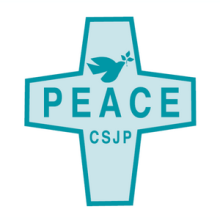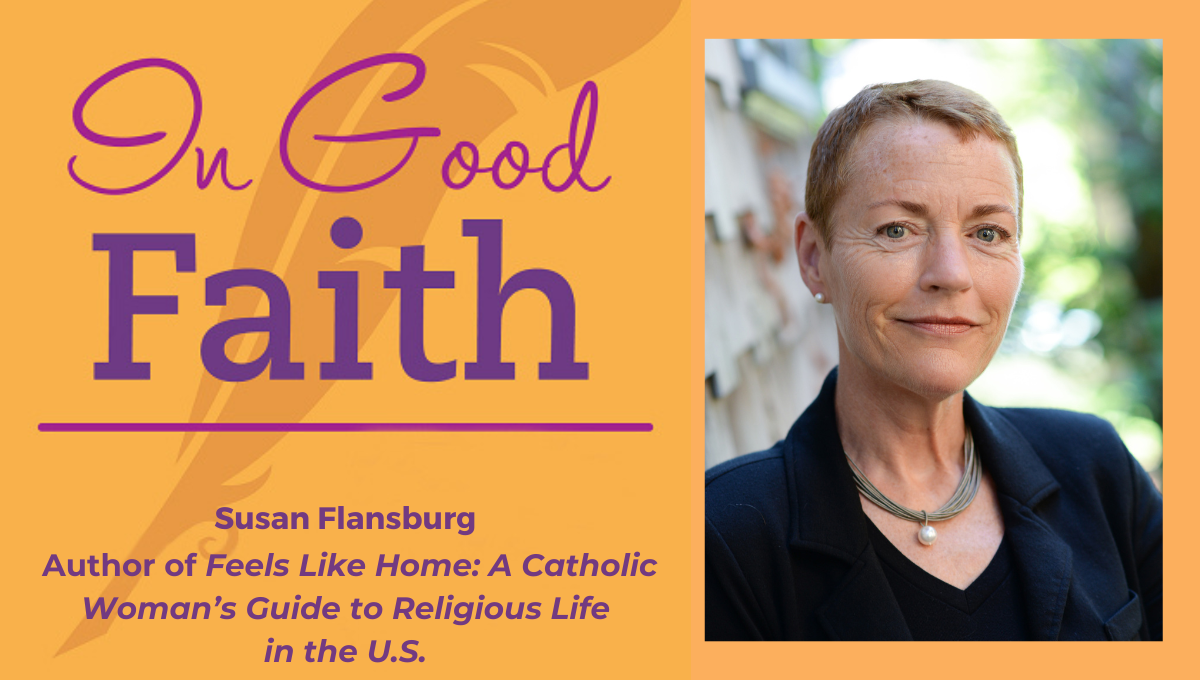
After 20 years of serving in communications ministry for Catholic Sisters (much of it supporting vocations), it became clear to Susan Flansburg that a guide for inquirers and discerners into religious life was desperately needed.
A “one-stop shop” of critical but hard-to-find insights and information, Feels Like Home was written with and for vocation directors from across the country. Their contributions form the heart of the book as they share what it means to belong to a range of institutes, from apostolic and monastic to habited, cloistered, and missionary.
A frequent contributor to many faith-based publications - including Vision Vocation, Horizon journal, and multiple Catholic religious institutes - Susan also writes for non-profit organizations from health care to higher education.
(1:38) Discerning a vocation
(4:00) Being an atheist
(6:33) Making vocational moves
(11: 42) Women religious rock stars
(14:41) Sisters United News
(20:49) The center of a congregation
(22:48) Apostolic communities
(24:29) Monastic communities
(26.56) The vow of stability
(32:11) Contemplative cloistered communities
(35:06) Missionary communities
(38:10) Which community is right for you?
(42:49) A powerful question for discernment
(45:41) The importance of changing course
(48:17) Cinderella’s slippers
I Surrender: A Memoir of Chile's Dictatorship, 1975 by Kathleen Osberger
Subscribe to our newsletter
Check out lots more podcasts
Let us know your thoughts about the podcast! Please take this short survey--your input helps us shape the future In Good Faith podcasts. Click HERE to take the survey.
Don’t forget to call us and leave a message. Tell us what you like, ask a question, or just say hi. Call 913-214-6087.
Thank you!
Sister Rejane
Hello, I am Sister Rejane, the director of A Nun's Life, and you're listening to In Good Faith. Have you ever wondered, how does a woman choose a particular religious community? And why? What is the difference between an apostolic and a monastic community? Can I visit a sister in a cloistered community? And what do all these terms mean? Join me today, as I explore those questions and more with author Susan Flansburg, as we discuss her book entitled, Feels Like Home: A Single Catholic Woman's Guide to Religious Life in the US. Welcome, Susan.
Susan Flansburg
Thank you, Sister Rejane. I'm so delighted to be here.
Sister Rejane
Yes, I'm really glad to have you and I am thrilled to find this book. And I just want to read this one little quote that I just think speaks volumes. "The first time I walked into the motherhouse, something clicked. It felt like home." And I know that quote really has a lot to do with the title. You can tell you've put a lot of work and love into this book. And I think it's a wonderful resource to discerners who are out there. But as we know, vocations are for everyone. So I think we should start -- why don't you tell us a little bit about your vocation story? Especially being a writer.
Susan Flansburg
Sure. In college, I knew that I wanted to be a writer. I saw visions of me writing in this most interesting and wonderful brownstone in Greenwich Village. I could see the dust motes in the beams of light coming down on my typewriter and stacks of notebooks. So this was what I was going to do. One day, I had a very disturbing vision. It was out of nowhere. It was not a dream; it was a vision. I was looking at a rounder of religious books in a religious store in my vision, and a thought occurred to me: Would you still be a writer, if this is all you could write? Now I was in the middle of my atheist phase. And I was a lit major. We would never have found me in a religious store. Ever. And so I pushed the thought and the vision out of my mind and did not again think of it until not too awful long ago, when I looked back on my life and realize that the past 20 years have been nothing but women religious and writing with them, for them. And writing this book. So that's part of my vocation story. Oh, yeah, I had a sign.
Sister Rejane
Oh, wow. I love how descriptive you were about envisioning yourself as a writer. And people often talk about that, like when you have a dream of what you want to be -- actually do visualize it. But yeah, that had to have been a pretty shocking vision if you were an atheist. Can you tell us a little bit more about being an atheist?
Susan Flansburg
Well, it's a funny term. It's funny for me, because that was my stated self-descriptor.
Sister Rejane
Okay.
Susan Flansburg
I was very busily arguing with God daily. I knew I was talking to God. I'm kind of an argumentative person to begin with. Yeah, so it's in that context. Today, I understand atheism as an absolute rejection of any kind of God, period. There's no God, period. That is not really what I was experiencing. But you know, I was somewhere between 18 and 22 or 23 years old. I wasn't being real clear about it. I was probably following some kind of guy that I was seeing, you know?
Sister Rejane
Sure, sure. I love how it's not even just questioning, you are actually arguing. So you're having a conversation, right. But wrestling, I think. We were talking earlier about that idea of Jacob wrestling with the angel, and that's such a beautiful image that I think fits what you were doing early in your life.
Susan Flansburg
Yeah, yeah. And I gotta say that my main issue as a 60-some-year-old woman has been pain in my hip. [laughter]
Sister Rejane
Gosh, really? [laughter] That's amazing.
Susan Flansburg
So hello, Jacob.
Sister Rejane
Hello, Jacob. You understand. What was the change, as you were arguing with God, that you could kind of grasp that, okay, here are certain things I'm just gonna have to accept?
Susan Flansburg
Yes. There was a maybe 10 -gap between that time where I was really engaged in this wrestling match and seeing life as a continuum and as interrelated and beginning to understand or experience the benevolence of the Divine. And I didn't track it. It just came gradually. So when I saw that the Benedictine Sisters were advertising for a communications director, and that my background is in communications, there was something in me that just said yes, in a very big and compelling way. Definitely, definitely a vocational move on my part. It was a call, without question. And so I went and applied. The vocation director and I became very, very close. In fact, I write about her in the book, Phyllis. She became prioress of the community while I was there. And I had to hold her afterwards that if they hadn't let me in, I would have stayed at the door, knocking on it. Which is what Benedict talks about: keep knocking at the door until you're finally let in. They had to let me in. I wasn't going anywhere. [laughter]
Sister Rejane
Well, and it kind of hearkened back to that vision, didn't it? That was embarking on writing religious books and materials and --
Susan Flansburg
Absolutely. Yeah, yeah. The spirituality piece is really a strong, strong draw for me.
Sister Rejane
For sure. And you know, you mentioned Sister Phyllis, and this is the other quote in the book I do like. She just sounds like such a very insightful woman. You know, when you said in your book, "Under her tutelage, I quickly learned that every communication must serve enquirers, partly because the rest of our readers would be interested anyway. Who doesn't like a good vocation story?" I think that sums it up. And again, when you talk about being integrated, that's what we're trying to do with communication. So you were with the Benedictines for over 20 years?
Susan Flansburg
No, I was with the Benedictine for 17 years
Sister Rejane
17 years. Okay.
Susan Flansburg
Mm-hmmm. And I have a son who has some mobility issues. And so I left them to start working on a freelance basis, to launch a freelance business, which today is going very, very well. But within a very short time, just a couple of months of my doing that, COVID hit. So what I did during that time was write this book.
Sister Rejane
So this book came out of having that time of kind of sheltering in place.
Susan Flansburg
Yeah, yeah. And I had really wonderful, wonderful contacts. The 25 or so sisters who are listed in the back of the book, who were resources for the book, and many of whom are quoted in the book, were all so generous and willing to tell me everything that they knew. Many of them came directly from Giving Voice, for instance, or my Benedictine vocation director today, Stefanie McDonald, called a number of her friends, vocation director friends, and put me in touch with them. We talk about "the nun network" -- it was very active for this book.
Sister Rejane
Oh, yeah. And for our listeners, Giving Voice is a kind of a networking group for religious Catholic Sisters who are under the age of 50. And it's open to women religious, and it's kind of spread out almost over the world. So that's what that is. Yeah. Just so you know. It's something I've tapped into many times. But I will be aging out in a year. Little sad about that. But have made some great connections that will last my whole life, forever. Yeah, yeah. Yeah, it is so wonderful. Well, okay, so question. So how does someone like you, who's not a religious sister herself, come to be inspired to write a book about religious vocations?
Susan Flansburg
We'll say it's part of my call. And that came to me very gradually as well. At one point, fairly early in my ministry with the Benedictines, Phyllis said to me, “This is your ministry.” And I thought, wow, she's right. It really is. Working with Catholic Sisters has been the most profoundly affecting thing I've done over time in my life. It has changed everything for me. I always say -- and it sounds like a joke, but I mean it -- that I was formed by the Benedictines. I was. I love men religious too. I've done some work with them as well, but nothing like with Catholic Sisters. They are the rock stars as far as I'm concerned. There is no job that is ever beneath a Catholic sister. If something needs to be done, it gets done. And that’s not the PR person in me. That's the reality. That said, their spirituality and their ability to articulate their spirituality is just extraordinary. It's extraordinary. So not only have I been really educated and moved by Catholic Sisters, and I'm in touch with Catholic Sisters from every walk of religious life -- but because my gift is writing, I've been compelled to tell their stories. This is what I do. And how could having been involved in Catholic Sisters' vocation communications -- how could I not take that and try to make it available more broadly than to the very thin slice of people who would read the newsletter that I used to author for the Benedictines. I had to; I was compelled to do it. Anyone who has been really aware of their call will understand what I'm saying. You don't have a choice. You just you just keep getting nagged until you say okay. [laughter] The Spirit does not give up.
Sister Rejane
No, that's true. Well, and it sounds like you really had a sense that this call to religious life was bigger than just the particular Benedictine community you were working for.
Susan Flansburg
That came slowly. I did not know that at first. I don't know if you've heard of the group Sisters United News, but it's a consortium of religious communities that are within about an hour and a half drive of one another along the Upper Mississippi River Valley. So it goes from the southern point -- Rock Island, Illinois -- and the northern point is Lacrosse, Wisconsin, which is where the FSPAs are, Franciscan Sisters of Perpetual Adoration. And then it moves out on either side just a little bit, not too far from the river. In fact, the Sinsinawa Dominicans might be the farthest away and I think they're a 15-minute drive from the river. So that was a consortium of communicators for our religious communities. It included the Trappistines, the Carmelites, a number of different apostolics like the Dominicans, Franciscans, Humilities. And then we were the only monastic, the Benedictines. And what I learned over the course of 17 years of involvement with that group -- we would meet in each other's motherhouses, for instance. Well, you don't spend time in somebody's motherhouse and not begin to get an idea of the flavor of that Institute. You do. You start to understand that the BVMs are this kind of -- I don't want to use the word charism, because -- In fact, NRVC posted a meme today or yesterday about the word charism, and I shared it on the Feels Like Home Facebook page. And I said, "I think I would use the word personality, maybe, as a synonym for charism." Because it's the hard thing to understand. Even if you're not just starting out, it's still hard to explain. Right? Especially in lay terms, but the personalities became very apparent. They're very apparent when you spend time with them. So I came out of those meetings knowing that I knew something other people didn't know. I knew something inquirers didn't know. I knew something vocation directors didn't know. Because as a communicator, I was paying attention to things that they weren't paying attention to. And they were meeting other sisters about whatever -- you know, some social justice project or initiative or something. I was paying attention to the people, and who are these people? And so that led me to propose to create -- and Stefanie McDonald, the vocation director for the Benedictines, jumped right on and said, "Let's do it" -- a Come and See retreat that had a panel of sisters from all of this consortium, from all of the communities in it. Not all of them participated, but most of them did. So we would have a cloistered nun, in full habit. We had apostolics. We had obviously the monastic. So we had this panel in which all of these women explained something about their Institute -- kind of gave an introduction. And then the enquirers were able to ask very particular questions of all of the different women who were in there. Not unlike, in a way, a Nun Run, which we used to do back in the early 2000s, I suppose. Where you'd have a group of inquirers, and you'd go from one convent to another on a Saturday if you had enough convents that were near each other. This was a little different, though, because they had a home for the weekend, and they could then ask questions. And then they could have lunch with them afterwards. And I thought: Oh, this needs to become a book.
Sister Rejane
We are going to take a quick break. Thank you to all our donors and sponsors who support A Nun's Life Ministry and our In Good Faith podcasts. If you have any questions or comments about this podcast, please leave us a message at 913-214-6087 We would love to hear from you, our listeners. We will be right back.
Welcome back. I am Sister Rejane of A Nun's Life Ministry, and my guest is author Susan Flansburg. You can find past episodes of In Good Faith and all our podcasts at anunslife.org, and on all the major platforms where you get your podcasts.
Susan Flansburg
So that's a long answer. But that's what happened.
Sister Rejane
That's beautiful. And there's a lot of terms there we definitely have to kind of unpack. I mean, just so listeners know: motherhouse is -- the best I can come up with, it's like the home base, or the center of a religious congregation, where sisters usually live and work, depending on the different congregations. It's kind of like the center of the organization. And I can totally see, having read the book, you know, you kind of take some of the format of a Come and See Weekend for people who are interested in having those personal call stories. And what is a typical day like. You even go through that in the book and then a question and answer, as well as reflection questions for the discerner so that she can really try to listen to the Spirit and I think some of those -- we call them really broad categories, right?
Susan Flansburg
Oh, yeah. Oh, yeah.
Sister Rejane
We've mentioned apostolic. Monastic. We kind of put contemplative cloistered -- there are some differences there. And then missionary. But we always want to say they're broad because a lot of communities have crossovers, right?
Susan Flansburg
They do, they do. The Benedictine does have a community that is missionary. Now, that's very unusual for the Benedictine, but they have one. And the Dominicans have communities that are cloistered contemplative. So yes, there is definitely crossover. Absolutely.
Sister Rejane
Right. Right. Yeah. Well, why don't we talk a little bit about each category, just to give our listeners a sense. I'll talk about the apostolic, since my community -- Sisters of Charity Leavenworth -- we're apostolic. And so we really are living in neighborhoods, we're not necessarily living in a convent, per se, which means having the, the Holy Eucharist and have a chapel. So we're in a rented house. But we have ministry, and we share life together. We pray one or two times a day, have personal prayer, but our main focuses outwards, t get to know our neighbors. And our motherhous is more for sisters when it's time to retire from active ministry and move more into a prayer ministry. So that's a very small definition. But I will say one crossover is the sister I live with, Sister Pat, was a missionary for four years and actually went to South Sudan with Solidarity for South Sudan. She has an adventuresome spiritual bond and taught teachers how to teach in that country. We say Jesus sent His apostles to go out and spread the good news. And so that's where apostolic comes from. Do you want you want to talk about monastic?
Susan Flansburg
Sure. So in contrast, monastic -- which certainly includes the Trappistines, who are 100%, cloistered -- and even there, though, there are levels of cloister. There are some communities that still have a grille so that nobody sees their faces at all ever again. But our Trappistines here on the Mississippi River and the ones who are featured in the book, obviously, because I interviewed them face to face, make exceptions to the cloister. But back to monastics: monastics can be cloistered like that, or they can be active within their lives, meaning they can go out. Some of them actually go out for ministry, like an apostolic. The difference for those groups like the Benedictine that I served several years ago -- my Benedictines would go out for their ministries, but come home for dinner and leisure, and they lived at the monastery. A monastic community largely lives under one roof. Unlike many apostolics -- and I will not say all; there's a group of apostolics in Nebraska who are fully habited and come home and live together after school. They are teachers. But they are not monastic. So it kind of depends on how you see yourself too, I think, to some extent. But the monastics, yes: they all live together, they all pray together. And by prayer together, I mean, they all go to chapel whenever their first time is --whether they begin with matins at o'dark thirty, or lauds, they are together in chapel several times a day.
Sister Rejane
Yes. Well, and don't monastics take a vow of stability?
Susan Flansburg
Oh, they do. You know, the vows are different. I think that the vows are more in the weeds than I got into in this book. Because when you really look at them and peel back the differences, you don't find a lot of differences. Stability for a monastic means you've made a promise to this group of women. And you're going to do everything you can to keep that promise to this group of women. And that is your stability. So that's embedded in, I think, in an apostolic mindset as well.
Sister Rejane
Sure, sure. But I think it does go back to -- I love that use of the word personality. When you just said that, I can see that. I have a lot of Benedictine friends, and there is, in a way, a depth of commitment to the group of women that they are living with. And for me as an apostolic, my priority sometimes is more on the people I'm serving. And that's more of the personality. I need to be more committed sometimes -- personal confession -- to my community, and I've never been able to put my finger on it. So with a Benedictine, that is beautiful to have that conscious vow. As an apostolic, we take vows of poverty, chastity, obedience. And obedience is the one that we say with our community. But I like the phrase stability, so I just had to throw that in. [laughter] Because I've often thought it meant like a place, but I think that's even better to say --
Susan Flansburg
It's not. It's not a place okay, it is a group. It is the women. Because in life, you might need to move. The community I served moved up to Rock Island from Nauvoo, Illinois in 2001, I think it was. They discerned the move together. It's partly about governance, too, you know. They do all things in consultation with each other. And they did discern the move together. And they then came together and started over together.
Sister Rejane
Yeah. And that takes a lot of faith and trust in each other.
Susan Flansburg
Oh, yeah.
Sister Rejane
What sparked their move?
Susan Flansburg
The boarding school that they had begun when they first went to Nauvoo -- so this particular community came originally from expat Germany, and came, per a bishop's request, to Pennsylvania, and then from there, went to Chicago, and became the Sisters of St. Scholastica there. Then they sent a group of sisters to Nauvoo per a bishop's request. And they founded a girls school, St. Mary's Academy, in Nauvoo. And then that was, oh, golly, in the 1800s. But it's been too long since I've really studied the material, so I can't tell you exactly when. Late 1800s. And then by 1994 or 5 or 6, maybe they just began to see that boarding schools were not going to be as popular an alternative as they once were. So they discerned that it was time to complete that mission. And they did it.
Sister Rejane
Thank you. Yeah. So okay, back into our four categories. The next one's the contemplative cloistered.
Susan Flansburg
It's the most mysterious category because you don't see them. Just don't. We do have another group of Carmelites, a different group than the one that was in this consortium, serving as nurses and administrators at a nursing home here. So they're out doing the work every day, and I have not talked to them about how they categorize themselves. I'm guessing, I don't know -- but I'm guessing that they are only out -- kind of like, any monastic -- for their ministry, and then back in under one roof at night. But that's kind of the exception, to see Carmelites out. The cloistered contemplatives are very inward focused. When you were talking about your apostolic congregation being outward focused, cloistered. contemplatives are inward focused. Their ministry is prayer and how they do that is in their daily lives in their enclosures.
Sister Rejane
They're focusing on that interior relationship with Jesus, both personally and communally.
Susan Flansburg
And communally. Yeah. And some cloistered communities are welcome to speak more than others. Some maintain such a strict level of silence that it's startling to hear anything when you're there.
Sister Rejane
And usually there's a lot of prayer for the world, for people that are requesting petitions, intercessions -- it's not just for themselves. It is beautiful.
Susan Flansburg
It's a beautiful life. It's not for everybody. But it is a beautiful life. And this this particular Abbey, Our Lady of the Mississippi Abbey, is just gorgeous. It is so peaceful and beautiful. I can't go there and not feel like I'm home. So yeah.
Sister Rejane
Yeah. And then our last of the four was missionary, right?
Susan Flansburg
Yeah. Right.
Sister Rejane
It's being willing to go into a different country, a different culture.
Susan Flansburg
Yes.
Sister Rejane
Maryknolls is oftentimes the community we think of.
Susan Flansburg
Yep. Yeah. And that's who I interviewed for it, was a Maryknoll Sister. And many, many, many, many, many communities have missionary elements. Many apostolics do. I know many don't. But the School Sisters of Notre Dame send sisters who are interested in going across the globe to wherever the missionary need is at the time. I think it's less so now. But the sisters were all over. Particularly South America. In fact, there was a book released, I think this week, written by Kathleen Osperger about Pinochet's brutal regime in Chile. And there are, I think it's four School Sisters, whose story is included in the book. Their story has to do with sheltering activists against Pinochet. And how dangerous it was. As I understand, it's a pretty gripping book. It's getting attention right now.
Sister Rejane
Yeah, that's kind of how women religious are. We end up getting ourselves in the mix of life. But not in a fancy out loud kind of way, but more with helping humans be who they are. With their being children of God and living our lives with dignity. I think for any inquirer or discerner, part of that discernment has to be, in a way, what kind of community fits for you? And it's all kind of connected with this call, but you're attracted more to or an apostolic or a monastic, contemplative cloistered, or missionary.
Susan Flansburg
Right. And there's some easy little clues. Are you so introverted -- a lot of Catholic Sisters really are introverted, and we understand that as requiring solitude to kind of reboot yourself. Not that you have to be in solitude all the time. So I want to draw that distinction. But are you so introverted that you can't even imagine living with more than one other person, and even living with one other person kind of makes you nervous. That's a real strong indication that you'll do best in an apostolic community. Because living in community in a monastic community, you could be in with 10 people; you could be in with 250 people. It just depends on the size of the community that is really as one. Mono: one. And they seek God together as one; they live together as one. It's not their charism so much as it is their practice. That's their practice. If you have the travel bug, and just really feel called, called, called, called to serve immigrants or those who are on the margins in Mexico, or Sudan then absolutely check out the missionary communities, understanding that there are apostolic communities that might also be serving those locations. And then cloistered contemplatives. Back to the introversion. You probably can tolerate that because it's built around silence and solitude, even side by side, you have a community with you. You have jobs to do -- heavens, they're busy all day long. But you don't have to be interacting in the same way as you do with the public.
Sister Rejane
We are going to take a quick break. Thank you to all our donors and sponsors who support A Nun's Life Ministry and our In Good Faith podcasts. If you have any questions or comments about this podcast, please leave us a message at 913-214-6087. We would love to hear from you, our listeners. We will be right back.
Hello, listeners, we are back. Remember to fill out our listeners online survey that can be found in the Show Notes. Your feedback is important to us. Let's finish our conversation with author Susan Flansburg. That's what I love -- some of these reflective questions are built into your book to help discerners tease some of that out. And yet, like you were saying, like if you're kind of introverted, and you don't want to be with a lot of people apostolic might be better. And oftentimes we think it's the opposite.
Susan Flansburg
We do. But not necessarily.
Sister Rejane
Not necessarily. I love sometimes saying, God's a rascal -- might call you or challenge you into something that you're not necessarily the most comfortable with. But that's how you're going to grow. And that's why there's always that constant, even as a discerner -- you've got to pray and have these conversations with others to kind of flesh out what is God calling me to? Yeah, but all of these are beautiful.
Susan Flansburg
And one of the vocation directors. So the book was guided entirely -- almost entirely -- by vocation directors. I got in touch with many and said, "What do you want in this book?" And they gave me a list. They were very generous with their time, and they really shared with me what they wanted. And one of them said, "Don't get too wrapped up in what is God calling me to. Ask yourself, What am I drawn to?" Boy, I sure never said, "What is God calling me to?" I didn't even believe in God. I had to not ignore my heart. That was really where it was at for me. But the vocation directors are the ones who said yes, we need questions for reflection. And Sister Stefanie McDonald and I worked together on all those questions. So they come directly out of experience with enquirers. Yeah, one of the things too, that I included, per their thinking, vocation directors' original thinking, was what I call bumps in the road. And those are where a woman has thought that this is the right place, wherever that place is, and she has gotten really deeply in to that place. And realizes kind of at the last minute, after telling everybody she was going to go become a whatever, that it's wrong and having to leave. That's part of the process. And enquirers have a very, very hard time believing us when we tell them that -- that don't be embarrassed by this. It's part of the process. And I want to say that maybe 30% of the women I interviewed for this book, started in the wrong place.
Sister Rejane
Wow, that's good for our listeners to hear.
Susan Flansburg
Yeah. I mean, some of them made it way far. One of them entered a community that was really mismatched for her. And she made it all the way to right before final vows before she left. So that's probably six years. That's really tough. That's really hard. And was she ignoring signs before then? Probably, but we don't have in place a discernment process for getting back out. And we probably should. Y
Sister Rejane
And when you say that, I think, especially in the US, we're so goal-oriented, and like step one, step two, going from point A to point B. And I think God - you know, there's that saying, God does not write with straight lines. And it's okay. Those lived experiences with different communities have given -- I'm sure -- those women a depth of insight and wisdom.
Susan Flansburg
Oh, yeah. Oh, absolutely.
Sister Rejane
And they take that into their new community. But yeah, you want to make sure that it's a place where you can be yourself and be joyful. And that your God-given gifts are used. That's why I think you're right when you say what are you drawn to? What is your heart drawn to? Yeah, that's a great question for discerners. You can have lots of twists and turns in the road. Yeah, that is so great. And the one thing is as I was reading through, every woman talked about that sense of belonging, right.
Susan Flansburg
Oh, yeah.
Sister Rejane
That is a common thread. And when you say, "feels like home," I think a lot of people desire that. And yet, you have to have that feeling. You can't just force it on.
Susan Flansburg
One person -- I can't remember if she was a vocation director, I think she is -- said that when you try ... and she has experience with it herself, because she started in the wrong place. When you are trying to belong in a community that isn't right for you, she said, It can be like, loving a pair of shoes so much, and you just can't make them fit.
Sister Rejane
Oh, I love that. [laughter]
Susan Flansburg
I know. I know.
Sister Rejane
I had an experience like that. I had this pair of shoes I loved, and I wore them, but they weren't quite comfortable. And then I was in an airport and had to run half a mile to catch a flight. And I ended up with plantar fasciitis because of those shoes. [laughter] I was forcing it.
Susan Flansburg
I'll say! Oh my gosh. [laughter]
Sister Rejane
I should have taken the shoes off and ran barefoot.
Susan Flansburg
Yeah. You should've. Good to know later!
Sister Rejane
Yeah, good to know later. Yeah, yeah. But that is a good analogy.
Susan Flansburg
Yeah. And that's the thing. Everything in the book really is story. It's all stories. It's a very short book, super short, which I was told it had to be. I mean, the entire book is directed by vocation directors. And one of the things was it can't be long. Another thing was it can't be expensive. I think it's $12.99. So it's not -- by today's standards anyway. And everything in the book, whether it's the stories that I've been told and am presenting, or the list of resources, which includes all these movies and books and papers and stuff. They all come from Catholic Sisters. But it's like a curation of stories and helpful information.
Sister Rejane
So where can we get this book?
Susan Flansburg
It's at Amazon and the link is Catholicsisterguide.com.
Sister Rejane
Okay. And I'll make sure I'll put that in the Show Notes as well, and on our website? Yeah, that's great. That's really great. Any last thing that maybe I didn't ask that you think our listeners should know?
Susan Flansburg
I would say this: this is written for inquirers. Yes, there are other people who have said that they really love it. I've had a lot of people tell me, "Oh, my gosh, this book should be on the shelves elsewhere because it's so interesting to learn about Catholic Sisters." It's like that line that you quoted, "Who doesn't like a good vocation story?" Everybody does. But the purpose of the book is to help women of, obviously, a certain age. Most communities, the very upper level, -- not for everybody -- but for most, is 50. And those contemplative communities, oh, they're still cutting them off at, I think, 35. At the most. But it's for those women who are probably in fairly early stages of discernment. This is the first book because it says what's out there. Nobody else has written a book like this. This is the only one of its type. And it really does help an 18-year-old, a 35-year-old, a 45-year-old. It helps her understand what's available. What some of the words mean -- there's a little glossary. What some of the books are that she might pick up or movies that she might watch that will help her understand what's out there.
Sister Rejane
And through real, concrete stories. I mean, these are real sisters. Yeah.
Susan Flansburg
And they're young sisters. All of the the major vocation stories. -- there are other stories in here. But the major vocation stories are all of newly professed sisters. The contemplative sisters who are in this book were in their 20s. I think one of them probably still is. And then the others are in there. One is in there in her 30s. One is in her 40s. So there's a range, but they're all brand new sisters. And then there are there are elders who weigh in, in the informational areas, too. But the one who entered the really, really radically wrong community for her entered when she was in her 20s, I believe, and so she's probably no more than late 30s now -- in the right community. Very, very, very happy. All these stories have happy endings, all of them.
Sister Rejane
Yeah. No, it's a great book. Definitely recommend it to our listeners. And I just say thank you, Susan, for taking this time today to kind of flesh out vocation within the context of your book.
Susan Flansburg
Thank you, Sister Rejane. It was so fun.
Sister Rejane
In Good Faith is a production of A Nun's Life Ministry, helping people discover and grow in their vocation by engaging questions about God, faith, and religious life. This program is made possible through the grace of God and the support of our sponsors of A Nun's Life Ministry and you, our listeners. Don't forget to call us and leave a message. Tell us what you like, ask a question, or just say hi. Call 913-214-6087 and visit us at anunslife.org. God bless.





